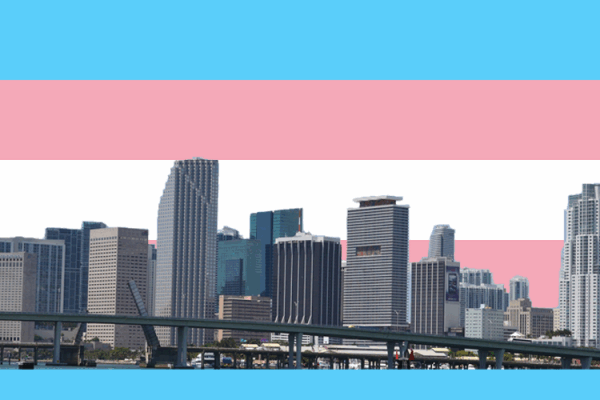Some protections exist at the local level in a certain places, but protection for trans people didn’t exist in Miami-Dade County
until last week , decades after protections were first put in place locally for lesbians, gay men, and bisexual people (although those protections were repealed in the Anita Bryant era, then later reinstated in 1998).
Long overdue though these protections were, that didn’t stop the opposition from turning out in droves, ill-informed about the ordinance’s implications and armed with a battery of harmful, cruel stereotypes.
Hundreds from both sides gathered in the morning to ensure that we could get a seat in the chamber to have our voices heard, although it would be ten hours later before the final vote would come.
I shed many tears in the Commission chamber listening to the over four hours of public testimony. I was proud to see the amazing community of advocates that I have come to know and love in South Florida, but the most powerful moments were listening to the many brave transgender women and men who shared their stories in spite of the dozens of folks there who called them pedophiles and sexual deviants and said that God did not love them.
One man, Tobias Packer, who is transgender, said, “Sitting in this room today, I was trying to remember when was the last time I felt so unsafe, so scared. It’s really painful when somebody who loves the community so much is sometimes reminded how much the community won’t love
them .”
Hearing the pain in his words, just as I heard the pain in the testimonies of so many other individuals, I wondered—did the opposition hear them too?
Ultimately, fairness and equality prevailed, and
the Commission voted 8-3 in favor of the changes to the ordinance. But as we move forward, I can’t help but think of all of those people who came out to oppose the ordinance, and how much work we still have to do.
I am ashamed that we continue to live in a world in which basic humanity must be debated, but I hope for many of those folks there—those who don’t understand what it means to be transgender, who don’t understand that transgender women are women and that transgender men are men—that they saw
human beings standing up there, courageously sharing a part of their lived experience.
My goal, as an ally, is to help convince each and every one of those people, one by one, until the fight for justice for trans folks isn't such a lonely one.

